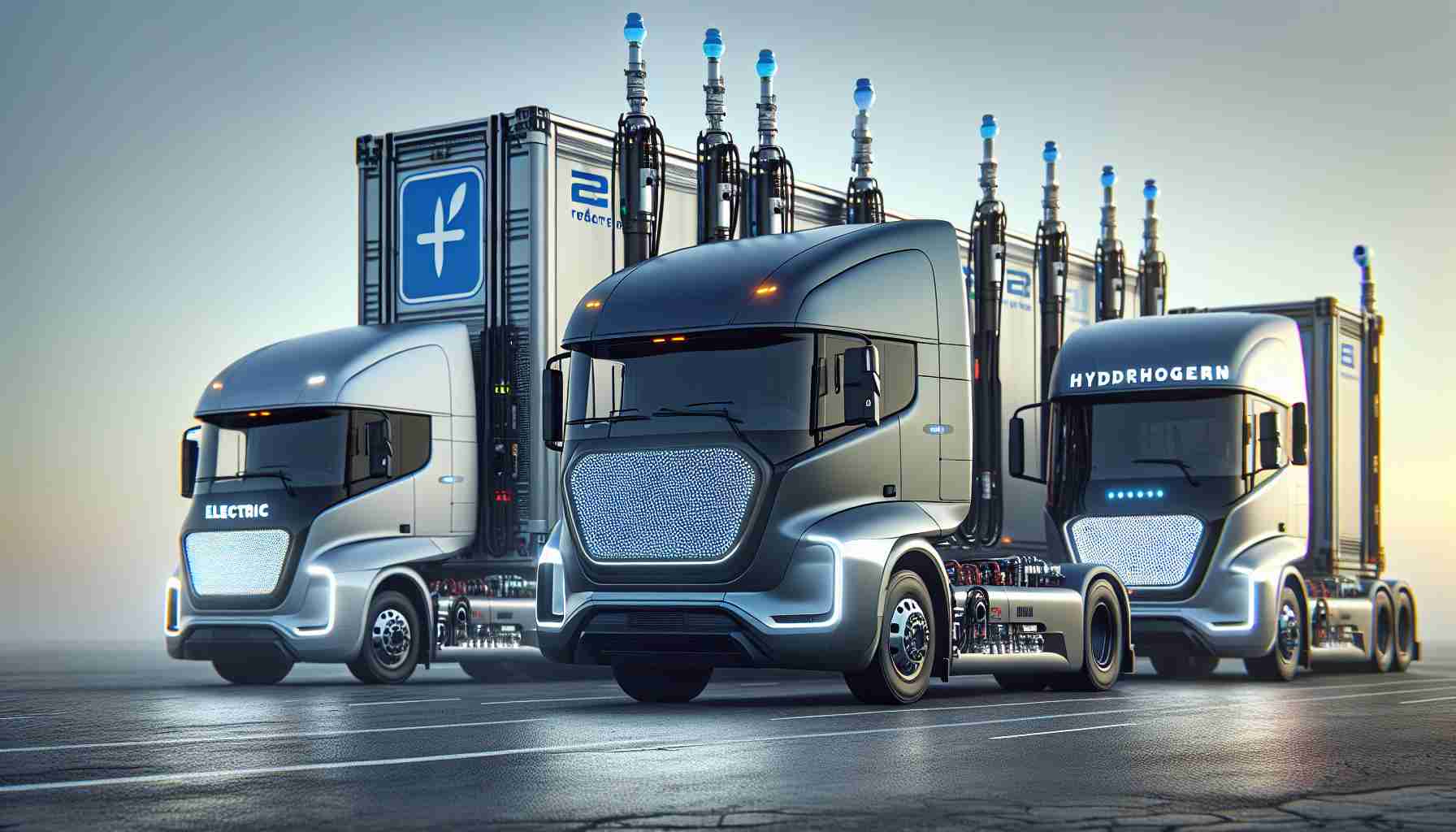The race to decarbonize freight transport is heating up in Germany, with battery-electric trucks leading the charge, as revealed by a recent study from the German Institute for Economic Research (DIW). Conducted alongside the Technical University of Dresden and the Institute for Energy and Environmental Research Heidelberg, the study emphasizes the significant advantages of battery-electric trucks over hydrogen fuel cell vehicles.
Battery-electric vehicles are making their mark in the freight sector, albeit slowly, with a variety of models now hitting the market. Hydrogen-powered trucks, on the other hand, remain rare on German roads, signifying a clear preference for electric over hydrogen technology in the realm of heavy transport. Freight vehicles currently contribute to 6% of Germany’s total greenhouse gas emissions, highlighting the urgent need for a sustainable shift.
The DIW report identifies a notable uptick in private investments toward charging infrastructure for electric trucks. The researchers stress the need for government support in expanding high-speed charging networks while advising against diverting resources towards hydrogen alternatives, due to the substantial infrastructure changes it would necessitate.
Enhancing battery-electric truck adoption is seen as crucial, with DIW experts advocating for transparent government backing to provide confidence to manufacturers and operators investing in this technology. The study also critiques the current emission reduction regulations, highlighting that battery-electric trucks offer greater efficiency over their hydrogen counterparts.
Projections suggest a full shift to battery-electric trucks for all new registrations by 2035, provided there is a substantial increase in charging stations. Despite the government’s current infrastructure focus skewing towards roads, environmentalists argue for a balanced investment in rail transport to genuinely cut emissions.
The Future of Freight: Are Battery-Electric Trucks the Ultimate Solution?
The ongoing discourse surrounding the decarbonization of freight transport continues to garner attention, with a decisive inclination towards battery-electric trucks over hydrogen fuel cell vehicles. While the German Institute for Economic Research (DIW) report highlights these preferences, it also opens up further discussions about the broader implications for technology and humanity’s progression towards sustainability.
Unveiling New Developments in Freight Technology
A significant and often unmentioned aspect of this electrification trend is the requirement and preparation of the workforce to adapt to new technologies. The shift towards battery-electric solutions encourages the emergence of new roles in the economy, such as specialized electric vehicle (EV) technicians and infrastructure planners, which need consideration in training programs.
Advantages and Disadvantages
The push towards battery-electric trucks isn’t devoid of challenges. On the one hand, these trucks offer greater energy efficiency, reduced greenhouse gas emissions, and lower maintenance costs compared to internal combustion engine vehicles. This makes them a lucrative option for companies aiming to reduce operational costs while improving sustainability.
However, there are concerns regarding the environmental impact of battery production, predominantly due to the extraction of lithium and other rare-earth materials. Recycling programs and technological advancements in battery production could serve as a counterbalance but remain a point of contention. Additionally, while electric charging infrastructure is growing, its expansion can still lag behind industry needs.
Addressing Key Controversies
A question that frequently arises is: Can batteries truly handle the demands of long-haul freight transportation?
Current technology suggests improvements in battery capacity and charging speeds are on the horizon, potentially making long-distance electric freight more feasible. Innovations in fast-charging technologies and battery swapping systems could alleviate range anxiety and downtime for electric truck operators.
Societal and Technological Impacts
From a societal perspective, the shift to electric freight transport could significantly lower urban air pollution, improving public health over time. Such transitions may also spur new investment opportunities, thereby stimulating economic growth through clean technology sectors.
Technologically, the race to optimize battery performance encourages advancements in energy storage that could trickle down to consumer electronics and renewable energy sectors, broadening societal benefits.
Exploring Alternatives: Is Rail the Unsung Hero?
While battery-electric trucks dominate the narrative, advocates suggest that a future-oriented solution might involve increasing reliance on electric rail systems instead. Rail transport offers higher energy efficiency for freight movement, provided that infrastructure is adequately developed.
Conclusion
The freight transportation landscape is at a pivotal moment, as battery-electric technology promises a cleaner, more sustainable future. However, the path forward isn’t without hurdles, and a multi-faceted approach involving infrastructure, technology, and workforce adaptation is necessary. Debates will persist, and only time will reveal whether this electric revolution will fully deliver on its promises.
For further reading on sustainable technologies and advancements in electric vehicles, consider exploring BMW and Daimler.







